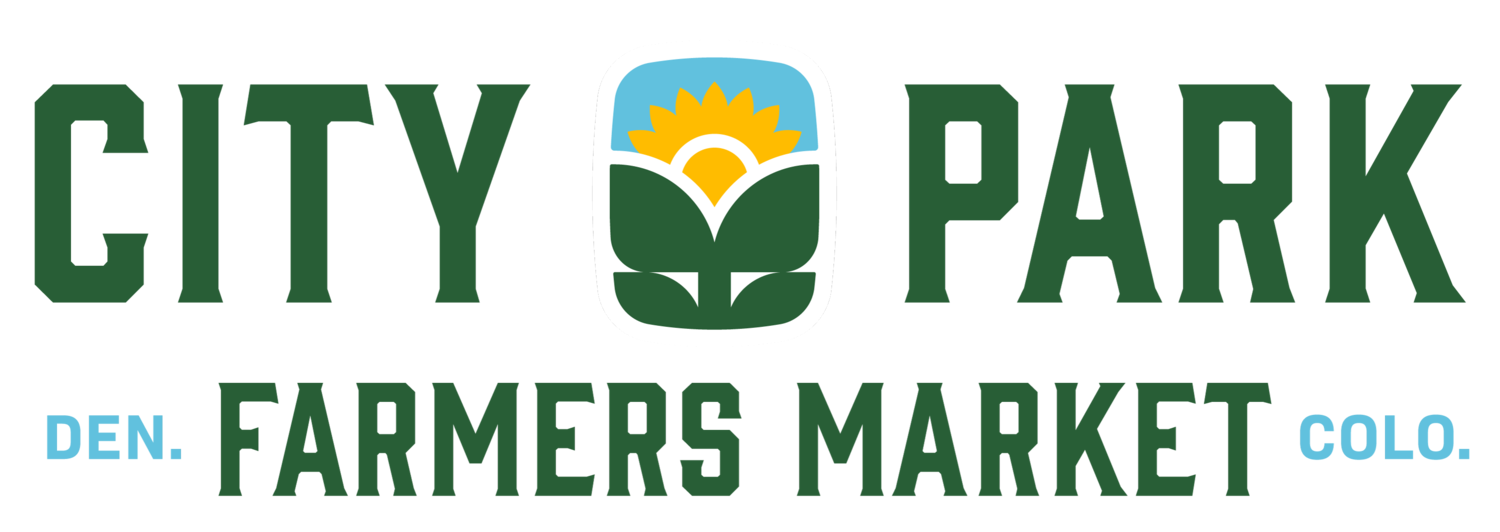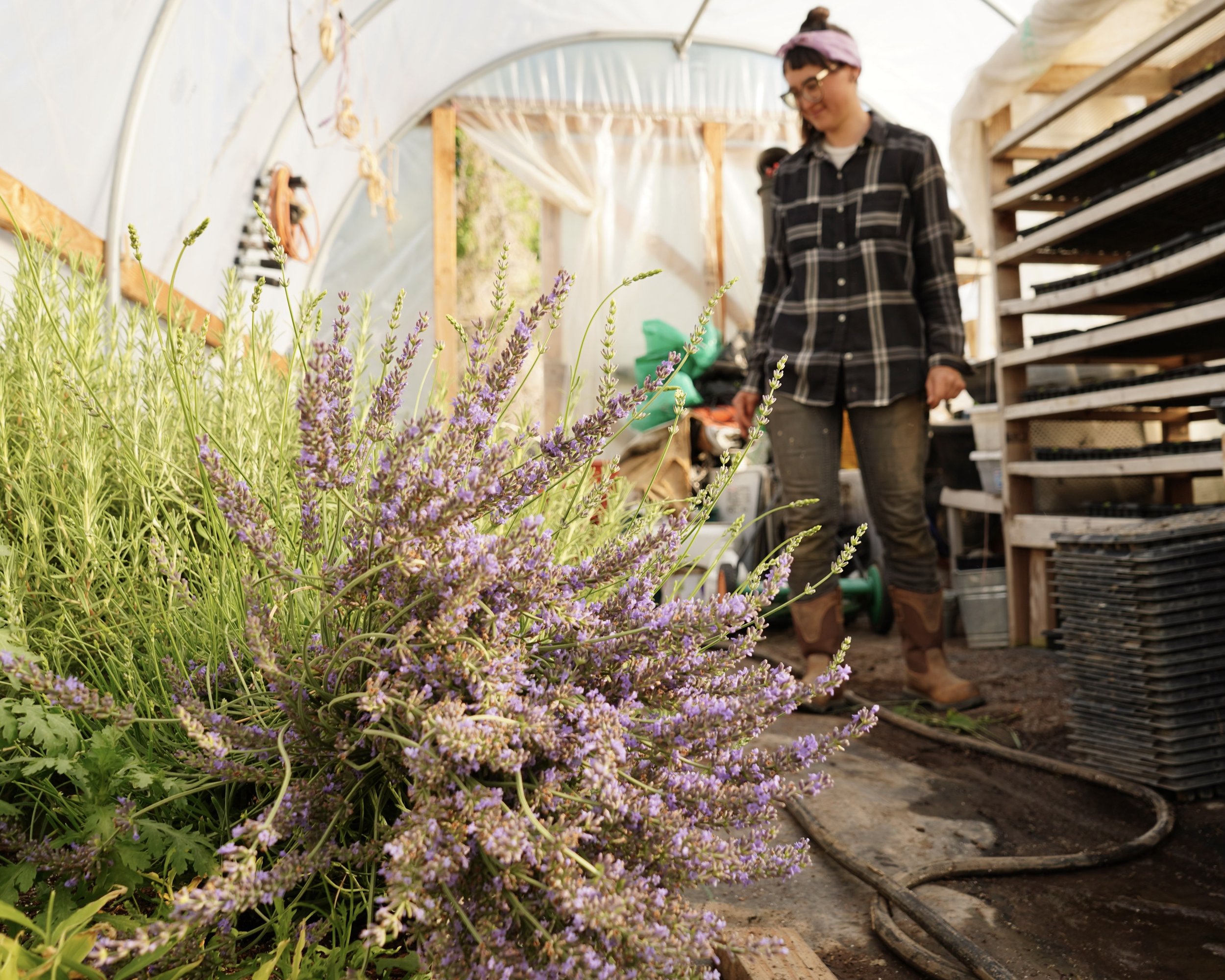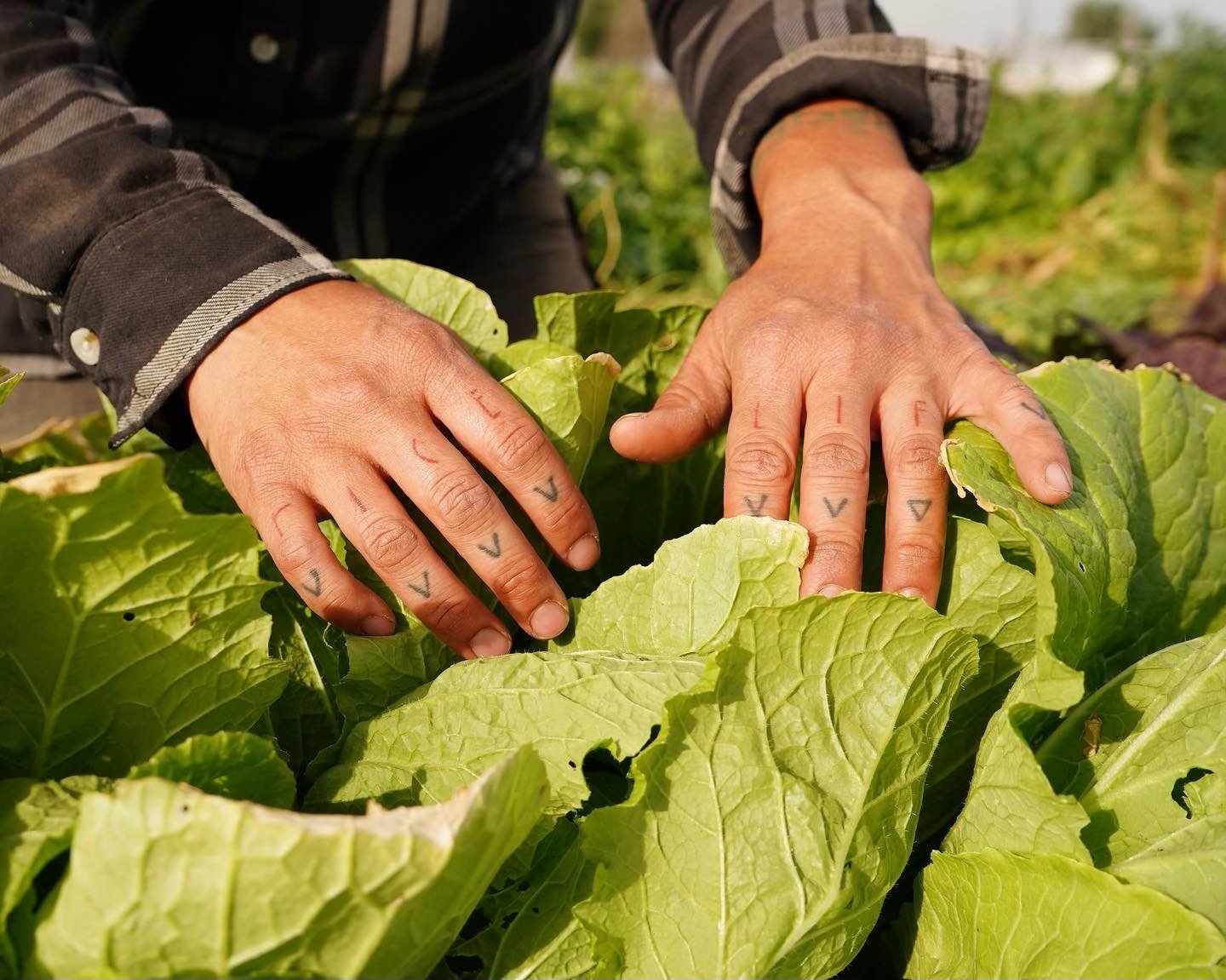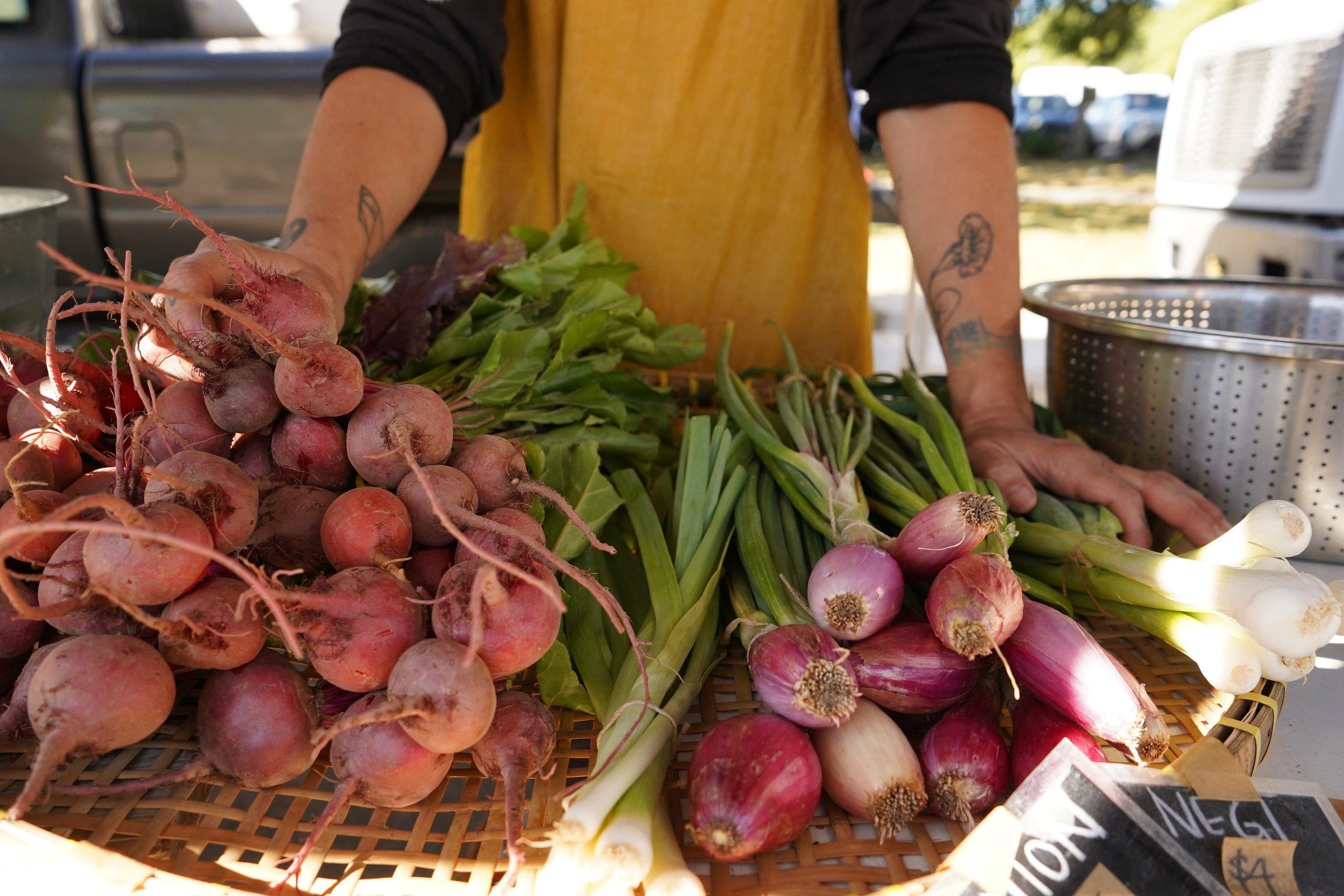Farming Food That Brings People Home
An interview with Jade Sato of Minoru Farm
If you’ve walked the market on a Saturday morning, chances are you’ve stopped by, or at least seen the iconic black tents adorned with white flags waving poetically on a long string. Those tents are the weekly home to Minoru Farm, a Yonsei mixed owned and operated farm that uses low-till, organic farming methods focusing on produce of the multicultural Asian people. Jade Sato first launched Minoru Farm in Brighton, CO in 2020, and was one of the very first farms to join City Park Farmers Market in 2021. Peter and I have asked ourselves on numerous occasions - how did we convince Jade to join CPFM the very first season?! And although we like to think she hopped on board because of our charisma and mildly rebellious game plan to open a market in the wake of the Pandemic, it’s much more likely that she just found it deeply important to be part of an urban market that cared about running accessibility programs like SNAP, DUFB, and WIC. She’s cool like that.
Although the establishment of Minoru Farm may be relatively new, the practice of growing food has been in Jade’s family for generations. Jade, who is Japanese American, has roots in agriculture that span all the way back to World War II, when her family lost their farm and was placed in an internment camp. Her family did not recover the farm but instead landed themselves in Colorado where they opened a floral shop. After skipping a generation in her family, Jade has now reclaimed the art of growing for herself. Minoru Farm, named after her paternal grandfather, is rooted in her familial traditions and takes on the same approach it did two generations ago: to nourish others with produce that makes them feel at home.
The first year we visited Minoru Farm with Jade, we pulled up to one high tunnel and a few rows of neatly laid out veggies alongside the tunnel on approximately ¾ of an acre. The remainder of the land was being cultivated with cover crops in the hopes of creating fertile ground for future use. Two beehives were adjacent to the high tunnel which made for a very picturesque scene as the sun was setting over her Brighton farmland. At the time, Jade was living in a school bus next to the farm with her husband and utilizing an old shed to propagate her seeds. That first year, I recall being mesmerized by the way in which Jade grew produce in her high tunnel. Tomatoes and squash climbed the sides, marigolds hugged the vertical plants closely, and herbs sprinkled themselves in neat rows parallel to the produce. Rotating crops took place down the center. The high tunnel in its full capacity looked like an abstract piece of art that had come to life - the colors, textures, and smells were all bursting with life in the late summer heat.
The second year, Peter went alone as I had just had our daughter Nora. He recalls being drawn into the ways in which Jade challenged the norm of farming. Her style was uniquely her, free flowing and inspirational, drawn to unique colors and experimenting with growing practices, all the while using Asian inspired varieties. Jade wanted her farm to look less conventional and more “punk rock” as Peter recalls her saying, only half joking. And although this third season we were unable to make it down to the farm, we did sit and have an intentional conversation with Jade that shed new light on the meaning of Minoru Farm.
Jade has grown the farm from ¾ of an acre that first year to now almost three full acres of farmland! When I think of Jade and her approach to farming, there’s a uniqueness that’s hard to put your finger on. While all farms require a considerable amount of planning, calculating, and organizing, Jade seems to also integrate her artistic nature and heart-oriented drive in a way that’s just… her. Although her clipboard with a spreadsheet of plans is almost always near, Jade tends to farm by being drawn into cultural history, interesting colors, and diverse taste perhaps even more than crop efficiency or yield.
One of her main joys in market farming is her participation in serving the Asian community, watching excitement over produce that often feels like an overdue homecoming. In a city that’s almost 70% white, Jade believes that her vegetables are a way to make a minority group of people feel seen and welcomed. She also loves being witness to customers desiring to learn and be open minded to new foods groups. Jade gave the example of the bitter melons she grew this past season… These quirky looking melons with nodule-like bumps covering the surface house a true-to-name taste. There’s immense joy in both someone instantly recognizing the fruit and sharing memories of the flavor, as well as someone who desired to learn about a strange looking fruit. This is a huge reason why Jade continues to be a market farmer - to make people feel seen while creating a space for others to be brave.
Jade also mentioned how she loves to think about how her produce has nourished life for so many at the market. She recalls meeting pregnant women three years ago at the inception of the market, sharing her produce with them, and now… years later seeing their almost 3 year olds running up to her farm stand to grab produce from her. Nourishing life, in all its forms, brings her tremendous amounts of life. The growing process remains her art form and ability to nourish others - that’s the why that keeps her going. When I think about the future of CPFM and the farm team that makes this market so incredible, I remain grateful for farmers like Jade whose heart behind farming will always be rooted in cultural heritage, community, accessibility, and healing.






